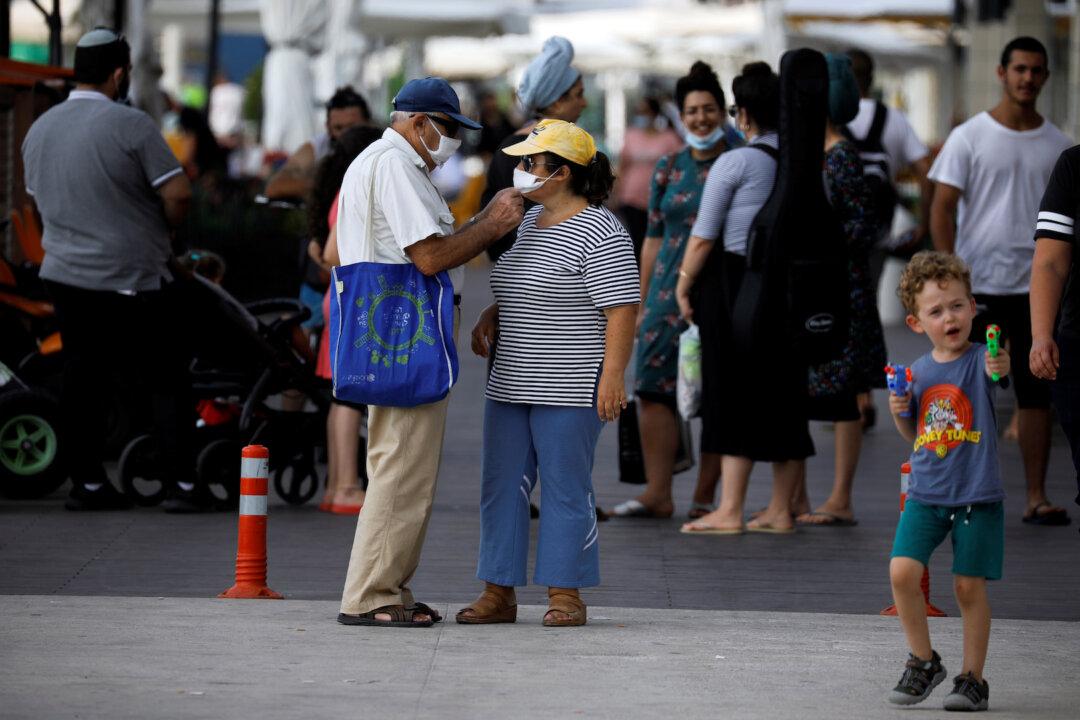JERUSALEM—Israel on Monday reimposed a series of restrictions to fight a spike in coronavirus infections, including the immediate closure of bars, gyms and event halls.
In public remarks at a special cabinet session on the health crisis, Prime Minister Benjamin Netanyahu said Israel had to reverse course to avoid a wider lockdown that could paralyse its economy, where unemployment is just above 20%. The Bank of Israel on Monday forecast a 6% economic contraction in 2020.





